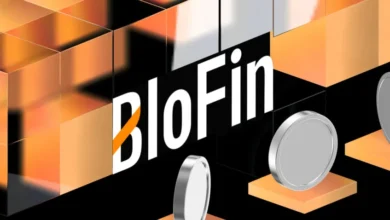What Is PENGU ETF? A Simple Guide to the NFT ETF

What Is PENGU ETF?
PENGU ETF is an exchange-traded fund (ETF) that holds both:
- PENGU tokens (linked to the Pudgy Penguins ecosystem)
- Pudgy Penguins NFTs (actual NFTs, not just tokens representing them)
This is different from other NFT-related ETFs, which usually hold shares in companies tied to NFTs rather than the NFTs themselves. PENGU ETF is the first to put real NFTs inside a regulated fund.
Who Is Behind the PENGU ETF?
The company behind PENGU ETF is Canary Capital, a digital asset investment firm. They specialize in crypto and NFT financial products. Their goal? To bring Web3 assets into traditional finance (TradFi).
If this ETF gets approved, Canary Capital will be the first to include NFTs directly in an ETF. This could reshape NFT investing.
How Is PENGU ETF Structured?
The PENGU ETF follows this allocation:
|
Asset Type |
Percentage in Fund |
|
PENGU tokens |
80-95% |
|
Pudgy Penguins NFTs |
5-15% |
|
Ethereum (ETH) |
Used for liquidity |
|
Used for liquidity |
Holding ETH and SOL helps the fund maintain liquidity since NFTs are harder to trade quickly.
Why Does PENGU ETF Matter?
This ETF could be a game-changer for NFTs in traditional finance. Here’s why:
- First ETF to Hold Actual NFTs – Most NFT-related ETFs only hold stocks or tokens. This one includes real digital collectibles.
- Bridges NFTs and TradFi – It could make NFTs more accessible to institutional investors.
- New Liquidity Strategy – Using ETH and SOL in the fund helps solve NFT liquidity issues.
However, some investors are skeptical. They question whether there’s enough demand for an ETF like this.
How Would PENGU ETF Work?
Since this has never been done before, details are unclear. But based on other ETFs and art funds, here’s how it might function:
- Investors buy shares in the ETF, not the NFTs themselves.
- The fund holds NFTs and PENGU tokens in cold storage.
- ETH and SOL help provide liquidity for buying and selling ETF shares.
- NFT values are updated based on market pricing and sales data.
Will PENGU ETF Be Approved?
Just because Canary Capital applied doesn’t mean the ETF will launch soon. The SEC has never approved an NFT ETF. The biggest concerns are:
- Pricing NFTs – Unlike Bitcoin, NFTs are unique and harder to value.
- Liquidity Issues – NFTs aren’t as easy to trade as stocks or crypto.
- Custody Risks – Storing NFTs securely is different from holding Bitcoin or traditional assets.
Still, the SEC recently approved spot Bitcoin ETFs, which means they are warming up to digital assets. If PENGU ETF meets regulatory requirements, it might stand a chance.
How Does PENGU ETF Compare to Art Funds?
Traditional art funds have existed for years. Here’s a comparison:
|
Feature |
Traditional Art Funds |
PENGU ETF |
|
Assets Held |
Physical paintings (e.g., Picasso) |
Digital NFTs (Pudgy Penguins) |
|
Investment Type |
Shares in art collections |
ETF shares linked to NFTs |
|
Liquidity |
Low (selling takes time) |
Medium (ETH & SOL reserves) |
|
Regulation |
Well-established |
Still unapproved |
Unlike traditional art funds, PENGU ETF brings real digital collectibles into a regulated space.
The Future of NFT ETFs
Whether PENGU ETF gets approved or not, this is just the start. More NFT-backed ETFs could follow. Future funds might include:
Canary Capital may be first, but they won’t be the last to try.
PENGU ETF is an ambitious attempt to merge NFTs with traditional finance. If approved, it could change how people invest in digital assets. However, regulatory challenges remain. Whether it succeeds or not, one thing is clear: NFTs are moving closer to mainstream finance.
https://www.coinbackyard.com/wp-content/uploads/2025/03/canary-capital-files-for-pengu-and-pudgy-penguins-nfts-etf-thumbnail-1024×486-1.webp
2025-03-25 12:00:00




